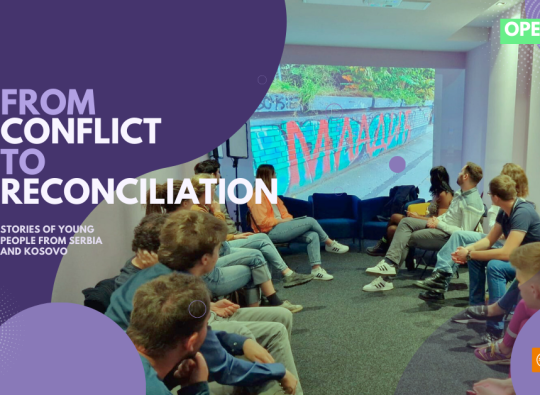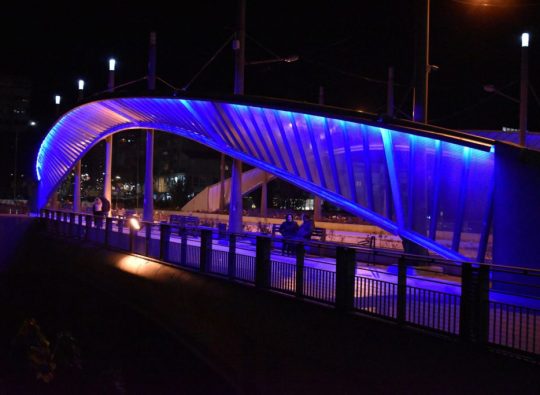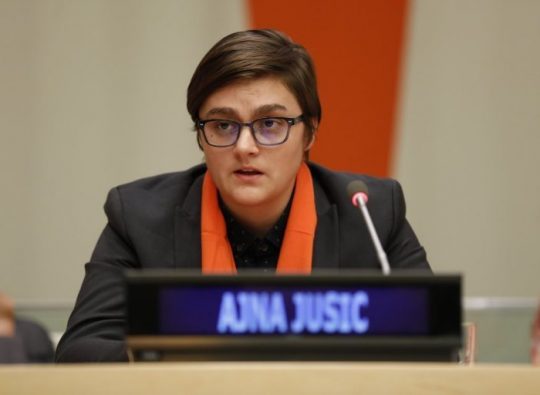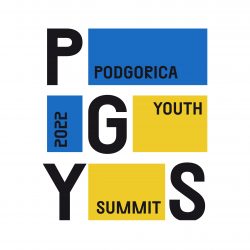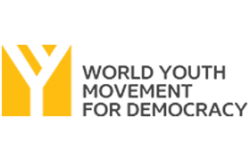Participants of the online panel ‘Role and Contribution of Youth in the Process of Peace and Reconciliation Building’ agreed that peace and reconciliation building cannot go through state institutions and schools alone, but that every individual and every segment of society must do everything in their power to contribute to that process. The panel, organised by the Youth Initiative for Human Rights Croatia (YIHR) and French and German Embassies to Croatia, took place on January 22.
This event marked 58th anniversary of the Élysée Treaty, also known as the Treaty of Friendship, signed on January 22, as well as the second anniversary of the Treaty of Aachen signed on the same date in 2019 as a continuation of the Élysée Treaty. These treaties regulate and institutionalise co-operation between Germany and France. The facilitator of the panel Branka Vierda from YIHR said that Germany and France, among other things done through youth offices, strive to continue building the climate of reconciliation between young people from these states.
– We have to talk about the contribution of young people to the culture of remembrance, especially regarding the events which marked the 1990s. These events are insufficiently talked about, from anti-war protests and campaigns, to the Erdut Treaty which led to peaceful reintegration – she said and stressed the need for young people’s contribution to the improvement of relations between Croatia and Serbia and creation of reconciliation policy and sustainable peace, as much as it may sound utopian at the moment.
French Ambassador Gaël François Veyssiere talked about the symbolism of January 22 and the treaties signed:
– Reconciliation after the experiences of the two countries in the wars of the 19th Century, World War I and World War II, required plenty of time, good will and great engagement. For this reason, historical co-operation of the two states is necessary, for their own benefit as well as for the benefit of the EU, and this is from the perspective of young, bright and highly educated people. Youth office is of key importance for growing unity and connecting young generations of the two countries. We have established the Regional Youth Co-operation Office (RYCO) in the Balkans, as well, which unfortunately does not include Croatia. It is important to stress that we should try to connect young people from the countries in the region. We know how much this process is difficult and fragile, but we have to make sure that such co-operation continues. France is willing to promote and support the role of young people in strengthening relations between the EU and six Balkan states – he said.
His German counterpart Robert Richard Klinke said that more than nine million young people from both states have extended the hand of friendship.
– The connection between the young people from the two states could not be possible without the work done by such an office. Responsibility does not rest only with governments, but with everything that makes the fabric of society, so that friendship between the two states that used to be enemies could be spread to the whole of Europe. Unfortunately, RYCO misses Croatian contribution to the work of this office. The Treaty of Aachen was signed in a difficult time of growing populism and nationalism, but it has given incentive to young people who are even more mobile in the exchange programmes, so that partnership and friendship prevail over rivalry and hatred, said Klinke.
Sandra Kasunić from the Centre for Peace Studies (CPS) stressed the importance of peaceful reintegration of Eastern parts into Croatia in the second half of the 1990s.
– This process, still underway, though positive, has no significance to the level which we who deal with the topic of peace would like it to have. I first heard of the peaceful reintegration at the CPS six years ago and I wonder why the mission mentioned as one of the most successful UN missions is not better known to the public, while after years of war and unrest, the Erdut Treaty was the first one with potential to bring peace. We do not have consensus about what was happening in the 1980s and 1990s, but we do not want the consensus to be political with mythologisations and interpretations. There are many courageous historians dealing with this topic, but we know how the people opposing official interpretation of the 1990s are called. Nationalist rhetoric keeps the electorate, she concluded.
Ivan Đurić from the Youth Initiative for Human Rights Serbia reminded of actress Mira Furlan who tried to build culture between Belgrade and Zagreb, but both nationalisms repudiated and dismissed her.
– Only after the deaths of Tudjman and Milošević did Mira Furlan return here, but she did not live to see anyone feel ashamed or for ideologies of hatred to be rejected. Serbia remembers military actions, but not truces; the messages of hatred are remembered, but not the stories about peace activists who were at the right side then and now – they are in the background. We are not ready to turn a new page, and for this reason we need help and support of foreign partners. By entering the EU, Croatia has become separated and considers itself immune to all diseases, but this is not the case, it can be seen on a daily basis. It is true that there is co-operation, better than 20 years ago, but only for the highest segments of society – young people travel, but only the wealthiest ones, or those involved in sports or arts, but only if they are the best ones. Societies need to connect, not only the elites; this is important for us and for the region. Relations between Croatia and Serbia are key for peace in the region; hence, partnership of two nationalisms in BiH is the greatest threat. They are the greatest threat for democracy in Croatia and Serbia because they are fed by hatred and dehumanisation of others, but there is always pressure from the opposition to be even more nationalist, and hence there is no strength for genuine reconciliation, even in the time of Tadić and Josipović – said Đurić. In his opinion, the office like the one in France and Germany would be necessary indeed, because it would enable the building of better relations and it would have a great chance for success.
– Croatian-Serbian relations are simpler. We have the same language, we share plenty of culture, both popular and elite, we are much closer than it seems, but the obstacle is the question of past which divides us most and causes the greatest hostility. Therefore, we need EU leadership to start that path, as well as a programme for youth which would also include youth from smaller towns in which the greatest number of people live. In addition, it is not only the official politics dividing us; the pressure coming from familial and local environments is the greatest obstacle for young people who do not remember the war. Young people born after the war are more imbued with nationalism than their parents, therefore we have to network and we need co-operation of institutions, said Đurić.
Florence Gabbe and Frank Morawitz from the French-German Youth Office talked about its activities:
– Inter-cultural exchange is important for the defence of human rights because it leads to reconciliation. Young people are our future and they must be integrated: for that, they need help to become acquainted and jointly collaborate on the topics of mutual interest. We have included associations, schools, kindergartens in the programmes; we offer educational support alongside financial assistance and enable education for those who would work with youth. The experience of reconciliation shall be shared with others, but since every country has different history and society, this cannot be copied. We have numerous programmes for the third countries, projects related to new Member States, as well as the initiative for Southeast Europe. In 2019, we had 367 trilateral projects with 38 states, 11 programmes with young people from Croatia and 49 projects with 949 young people from the whole Southeast Europe addressing the topics of identity, integration or environment – said Florence Gabbe.
According to Frank Morawietz, strong co-operation of France and Germany brings experience which does not belong only to the two countries, but to all Europeans.
– This is a positive example of how to overcome a conflict. Better understanding of oneself is necessary, and I have learned the most about my country in France. We can build Europe only by respecting the perspective of others, whereby we must not approach nationalistically but in a European manner. We should also talk about joint past, otherwise we create stereotypes. If we fail to learn something from it, it will repeat, but if we do not talk, it can be misused. We cannot function together in peace if we do not try to talk about difficult parts of our history every day, concluded Frank.
Answering to Novosti’s question as to how much the upcoming rounded anniversaries of the wars of the 1940s and the 1990s, which will be commemorated, could interfere with the reconciliation process, and, on the other hand, how much disasters and humanity expressed in the events of disasters could support that process, Đurić said that “there is solidarity between us, but we need a common enemy in order to find a connection between us”.
– Anniversaries may serve as a tool for further distancing, but also for the attempts to get closer. We use it to further fortify ourselves within our nationalist fortresses, while our political leaders are not afraid of what awaits them on the outside, but of those from within “their’ fortresses. We should understand the emotion of others more, celebrate peace and not war, and we should not insist on being in the position of a victim. It is a big mistake that ex-Yugoslavia countries entered the EU following the same procedure as the others, although we are post-conflict societies. We are facing that mistake even now – underlined Đurić.
Author: Nenad Jovanović for Portal Novosti

